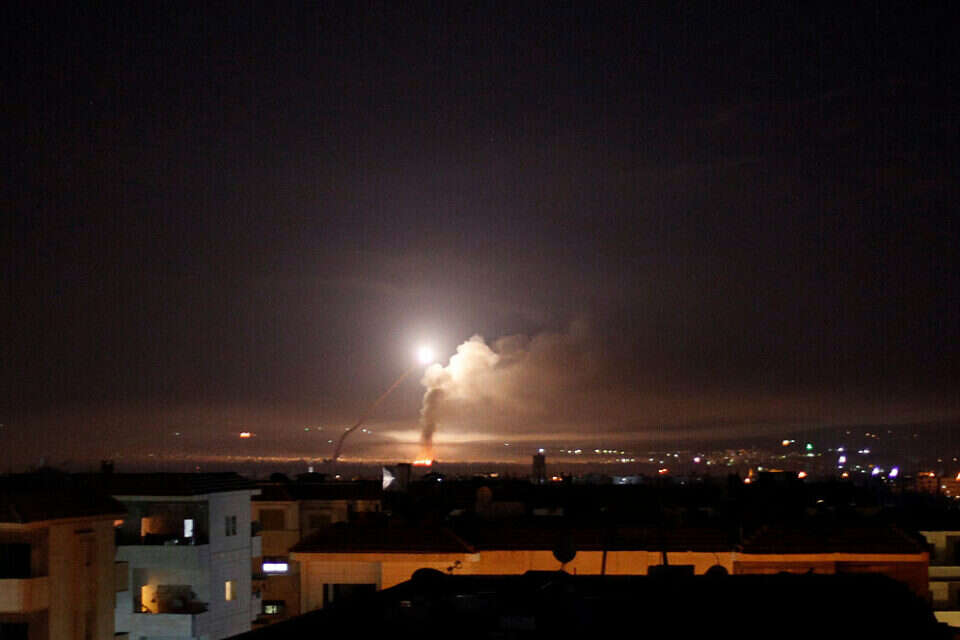The attack on the secret sites where Syria sought to re-manufacture chemical weapons had a threefold goal: first, to deprive Syria of unconventional capabilities, even if only in their early stages.
The second is to make it clear to President Assad that Israel will not allow Syria to threaten it again with weapons of mass destruction.
And third, to send a message to other countries, led by Iran, that Israel will act in the same way against anyone who develops weapons that threaten its existence.
The Washington Post revealed yesterday that Israel has twice attacked sites where Syria has secretly developed chemical weapons.
The first attack was on March 5, 2020 against a villa and another compound in a suburb of Homs, after it became clear that Syria had secretly purchased a large amount of tricyclic phosphate (TCP), a dual-use material that could also be used to produce nerve gas.
The second attack was on June 8 this year against a bunker in the town of Nasiria, north of Damascus, and two other sites near Homs.
Seven Syrians were killed in these attacks, including a colonel named Aiham Ismail, who was a senior member of the CERS, the Syrian "military industry" in which Syria develops chemical weapons.
Israel-Syria border (archive), Photo: Gil Eliyahu-Gini
Syria has previously held a huge arsenal of chemical weapons, mostly of the deadly VX and sarin nerve gases. The Assad regime has used chemical weapons against its opponents in dozens of cases, but was forced to change direction after more than 1,400 civilians were killed in an August 2013 attack in Damascus. Following the US threat to attack Syria in response, Assad agreed to give up his arsenal of chemical weapons, and the Americans and Russians reached an agreement under which more than 1,300 tons of various types of chemical weapons were exported (and destroyed) from Syria.
Despite his commitment, Assad continued to use other types of chemical weapons against his opponents, most notably chlorine. Israel has warned that the fact that the world allows it to do so will sooner or later lead to Syria's return to more advanced chemical weapons production, as it did. It seems that unlike in the past, Israel has decided not to wait until Syria is equipped with a large amount of chemical weapons, but to destroy it already in its early stages of development. However, the fact that Syria has continued its development efforts, even though it was attacked for the first time, shows that alongside the pleasant face it is trying to present to the world, Assad continues to try and equip itself with capabilities for mass destruction.
It is not clear from the Washington Post what the US position was regarding the Israeli attacks, and in particular - why the US did not attack itself, having explicitly pledged in the past that it would not allow Syria to return to chemical weapons of any kind. This may be due to the fact that Israel preceded and did so as part of its attacks in Syria (although this time the targets were not Iranians or their emissaries, but explicitly Syrian), and the Americans may have simply shied away from using force - both the Trump administration and Israelis , During which time the second attack was carried out.
In refraining from an attack, the Americans (again) missed an opportunity to convey a message to the Middle East and the world at large.
Israel, on the other hand, has (again) insisted on its principles and even extended the "Begin Doctrine" - according to which it will not allow any country in the region to possess nuclear capability - not even chemical capability.
This also seems to be the motivation for publication yesterday.
Although the information in it is not directly attributed to Israeli sources, the manner and timing indicate that there were those who had an interest in exposing the attacks right now - with the nuclear talks with Iran in full swing - so that they resonate beyond Syria, especially in Western capitals and Tehran.
Were we wrong?
Fixed!
If you found an error in the article, we'll be happy for you to share it with us

